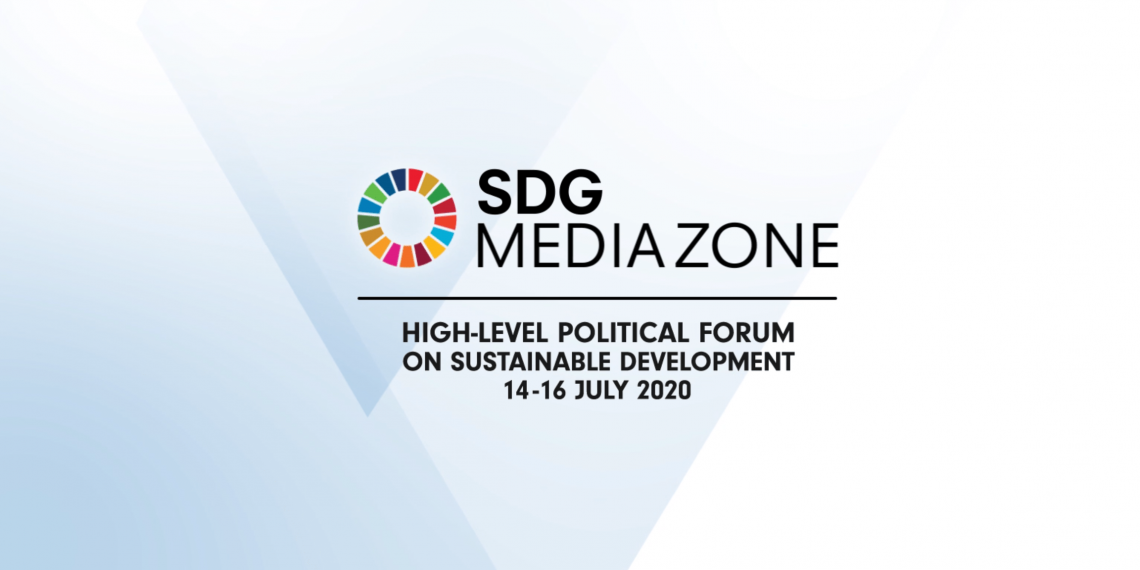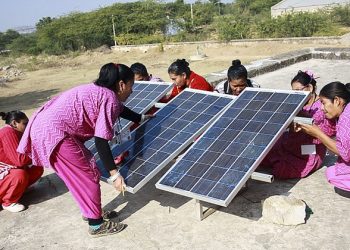2015 provided an unprecedented opportunity to put the world on a sustainable development path – with the birth of the Sustainable Development Goals, a comprehensive blueprint for a better world, where everyone had equal opportunities and a healthy planet to call home.
In the last five years, some progress was made – improvements in maternal and child health, access to electricity and women’s representation in government – but it was uneven and insufficient to meet the Goals by 2030.
Today, the unprecedented devastation caused by the COVID-19 pandemic, in just a matter of months, has disrupted any progress made so far, severely impacting people’s lives and livelihoods, and leaving unimaginable strains on the world’s poorest and most disadvantaged communities.
So we asked three prominent public figures – the UN Deputy Secretary-General Amina Mohammed, Prime Minister Erna Solberg of Norway, and Actress and Activist Dia Mirza, if the SDGs still mattered and how we can build back better in the wake of COVID-19.
“The SDGs matter even more and had we had more success with the SDGs, we probably wouldn’t have been in such a crisis so they still matter. COVID puts a pause on many things, it should not put a pause on the SDGs,” said the UN Deputy Secretary-General who led the process to put the Goals in place in 2015 as well as the Decade of Action for Sustainable Development earlier this year to drive progress.
Stronger health systems, fewer people living in extreme poverty, less gender inequality and a healthier natural environment mean stronger and resilient communities and countries that are better equipped to face today’s challenges. However, Ms. Mohammed remains optimistic that we can still make those changes as we recover and rebuild.
“COVID has been the best opportunity that we’ve had to accelerate the Decade of Action. It’s really about leaving no one behind, but for real now.”
If so, how do we leave no one behind?
“COVID-19 has, in fact, highlighted some of the real challenges around the world and those who are the most severely hit, are the most vulnerable people,” said Prime Minister Solberg, adding that “the world isn’t better than what the most vulnerable people are feeling in this world and that will affect all of us.”
Highlighting the need for a holistic approach to recovery that includes economic and social development as well as human rights and rule of law, as enshrined in the SDGs, she stressed that we “need global solutions to global problems.”
“We need to increase cooperation and public/ private partnerships. We have to fight divisions and discrimination. We have to fight all of this to make sure that we are in fact managing the world as a better place for everybody and that benefits us all.”
Their discussion is a part of a series of panels organized on the sidelines of the UN High-level Political Forum (6 to 16 July), hosted by the organization’s Economic and Social Council. Seen as the biggest gathering of global leaders from various sectors of society on SDG progress, the Forum allows countries, businesses, civil society and even local governments to report on their efforts to advance the Goals.
According to the President of the Council, Mona Juul, there has been an even stronger emphasis on a coordinated multilateral response, strong political leadership and global solidarity this year. She called the Forum “a springboard for greater solidarity and cooperation” and COVID-19 “a wake-up call for us to strengthen international cooperation.”
“We have the solutions, we have the technology, we have the science that is evidencing the solutions to all our problems, helping us understand our problems better,” stressed Dia Mirza, who is also a Goodwill Ambassador for the UN Environment Programme, particularly committed to tackling air and marine pollution.
“This I think is an extraordinary time for us to take cognisance of this fact, understand it, educate ourselves, and will ourselves to do better.”
Watch their discussion to learn more about why the Sustainable Development Goals matter now more than ever.



